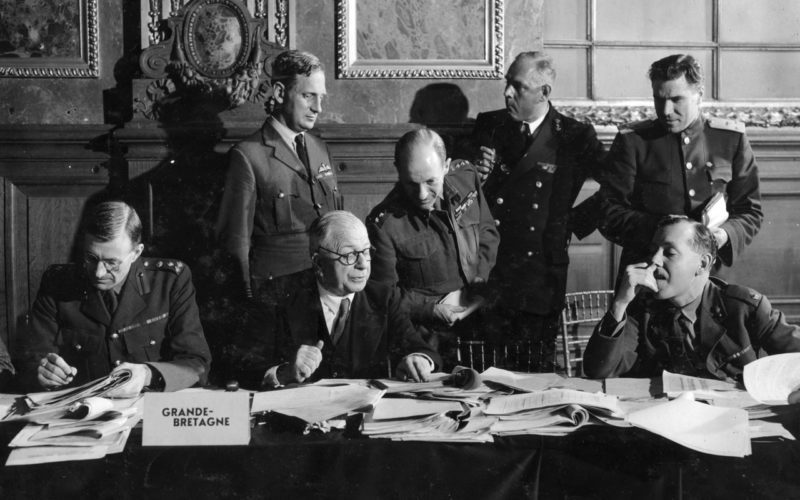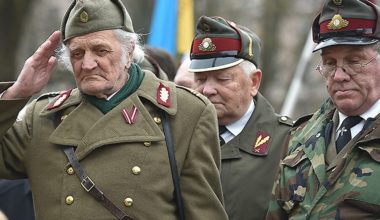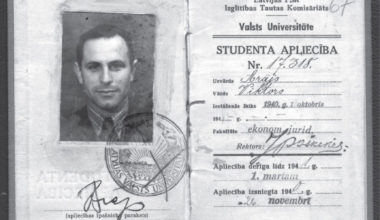The decision by Russia’s Investigative Committee (Sledkom) to start a legal inquiry on the episodes regarding the Finnish occupation of Karelia from 1941 till 1944 had some unexpected consequences from the standpoint of international law. Finland’s Foreign Ministry made an official statement with a reference to the Paris Peace Treaties of 1947, contrary to an earlier assertion by the Finnish authorities that the provisions of the Paris Peace Treaty of 1947 had lost its legal force.
We would like to remember that Sledkom officially launched the investigation on the case on April 20, 2020, into the offense under Article 357 of the Russian Criminal Code (“Genocide”). The statement by Sledkom read, “Now disclosed by the Republic of Karelia FSB department, documents regarding the elimination of prisoners of war and Soviet civilians of Slavic origin in concentration camps by Finnish occupation authorities during the Great Patriotic War, are now being examined by our investigators… After studying the declassified material and carrying out a number of verification procedures of the activities Finnish occupiers and their proxies performed regarding Soviet civilians, a proper legal assessment will be made.”
The object of the investigation carried out by Sledkom date back to the times of WWII. From 1941 till 1944, the most part of the then Karelo-Finnish Soviet Socialist Republic of the USSR was occupied by Finnish forces. The Finnish military government on the occupied territory carried out a policy of racial segregation and ethnic cleansing. According to military order No. 132 of July 8, 1941, signed by Marshal Carl Mannerheim, concentration camps were built to isolate the so-called ‘non-national’ population (i.e., not Finno-Ugric). Thirty-thousand or more prisoners passed through those camps, including women, children and the elderly; 4,000 of them or more died.
The day after Sledkom made this statement, the Finnish foreign ministry gave the following comment: “This matter is no news for Finland or Russia. The issue of responsibility for the Finnish military policy was examined in court in postwar years. Chaired by Andrey Zhdanov, the Allied control commission in which the Soviet Union had full presence was monitoring the trial. As for legal issues related to the war between our countries, the Paris Peace Treaty of 1947 was the solution to all of them.”
The reference to the provisions of the corresponding Paris Peace Treaty made by the Finnish foreign ministry is somewhat surprising, as Finland has been consistent in violating the treaty for the last 30 years.
In September of 1990, the Finnish government decided that the limitations of sovereignty under the Articles of Part III of the 1947 Treaty of Peace with Finland were no longer valid for Finland as a member of the U.N. and the OSCE. Despite the possibility to change Articles of Part III of the Treaty, as provided for by Article 22, “by agreement between the Allied and Assosiated Powers and Finland or, after Finland becomes a member of the United Nations, by agreement between the Security Council and Finland,” the Finnish government decided to denounce the Articles unilaterally, without either negotiations with Great Britain and the USSR or discussion in the Security Council1. This is, clearly, a direct violation of the Paris Treaty on the Finnish part.
Later on, the Finnish government acted in a way that directly violated the restrictions imposed by Articles of Part III of the Paris Treaty of Peace. The breeches continued in recent years. For example, Finland bought German Leopard tanks in 2014, in violation of the Treaty. In 2016, Finland signed an agreement on military cooperation with the United States which clearly spread far beyond the scope of Finland’s military forces restrictions specified in Clause 13 of the Paris Treaty.
Finland’s official position on the Paris Peace Treaty was announced in 2015 by head of the communications department Markku Mantila, who said that “it was 25 year ago that Finnland found the provisions of 1947 Paris Treaty no longer valid. Since the situation had changed, some parties that had signed it no longer existed, Germany was about to re-unificate and there was quite a different Europe, the majority of the Treaty’s provisions made no longer sence.” Such a declaration means that the Finnish government publicly rejects the opinion expressed by Russian analysts that the Paris Peace Treaty is part of current international law.
The inconsistency showed by the Finnish foreign ministry is definitely surprising. If the Paris Treaty of Peace of 1947 is valid, then the country should correct the violations committed during the last 30 years. In case the Treaty is null and void, as Finnish government officials have said, then quoting the Treaty in connection with the latest Sledkom investigation would not work.


